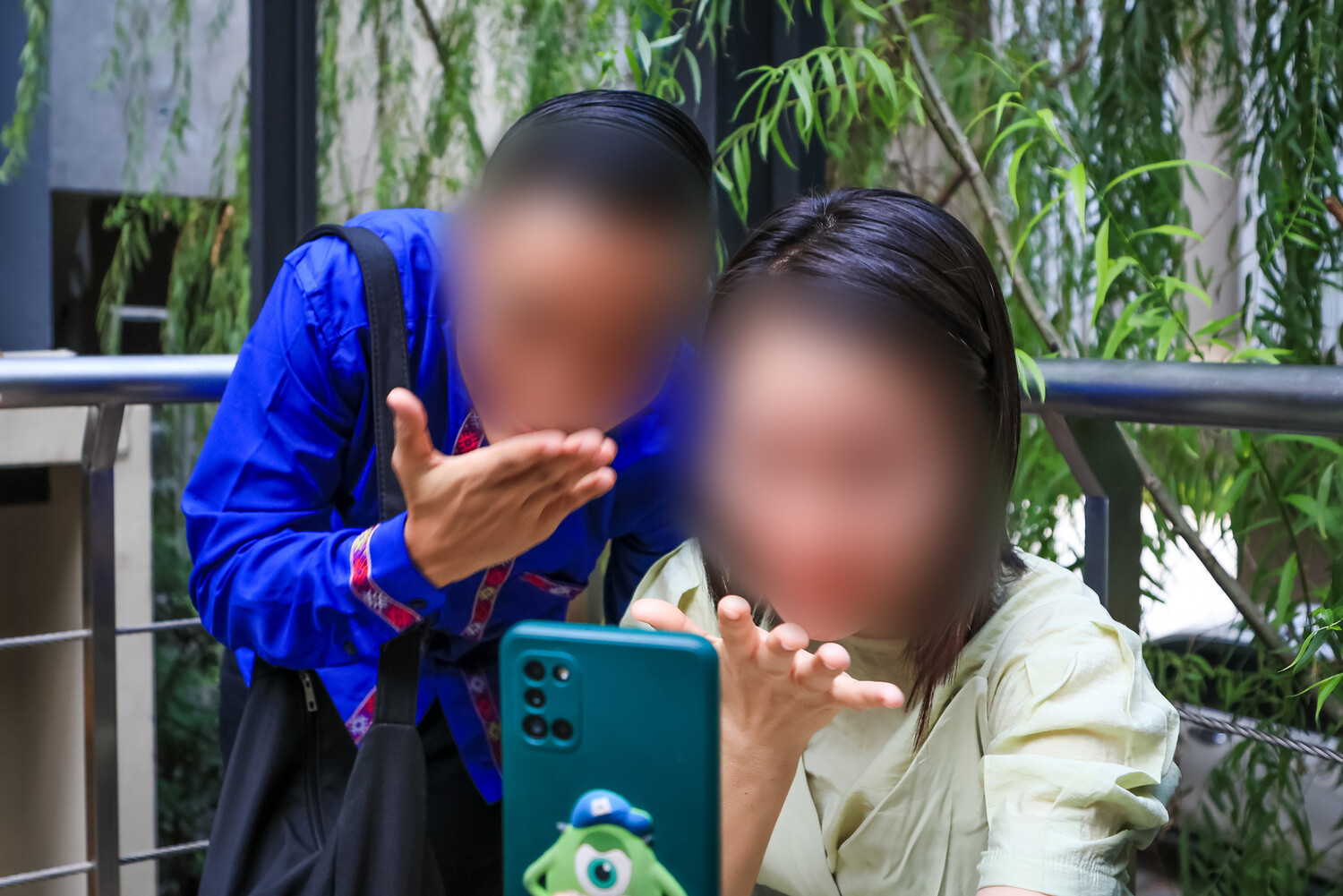In the blazing sunshine, the rice fields look like a supersaturated photograph. Sweat trickles down our necks, only partially absorbed by the broad-brimmed hats that were mercifully distributed earlier in the week. The campers bend and hook the rice stalks with their sickles, collecting the precious grain with varying degrees of skill. Some of them have clearly done this before—their technique looks effortless, and they lay their rice bundles in even rows. But you can tell that most of the campers are city kids, with all the farming finesse that designation suggests. It’s the service portion of Camp Wycliffe, and we’re getting a taste of what it means to serve with our hands.
Camp began two days prior, in the sleepy northeastern Thai city of Mukdahan, at a church compound on the city outskirts. Young people from around Thailand and a neighbouring restricted access country gathered for the four-day immersive introduction to missions that Wycliffe Thai Foundation offers each year. The camp is a chance for them to get a taste of the tools they’ll need and the trials they’ll face if they choose to work in Bible translation.
The first two days were classroom-based, with sessions on linguistics, translation principles, and oral Bible storying. Translators from the field shared their experiences, and the campers took a field trip into the city to visit local Christian churches. We slept on the floor in simple dormitories, and shared meals of the famously spicy regional cuisine in the compound’s central courtyard.
On day three, everyone loaded into a large song taew—a truck with two parallel benches in the back—to travel to a nearby village where we would stay for the last two nights of camp. The campers had spent that morning preparing songs and testimonies to share with the small Christian church in the village. But as the kilometres clicked by, conversations turned to the rice harvest we would help with the following morning.
History of Camp Wycliffe
Wycliffe Thai Foundation has been hosting Camp Wycliffe for over a decade, and this was the first post-Covid iteration of the program. It’s named after the original Camp Wycliffe, the linguistics training school founded in 1934 by Cameron Townsend that would grow into Wycliffe Bible Translators and the Summer Institute of Linguistics (now known as SIL International). The current version may look different than the original, which took place over an entire summer in an Arkansas farmhouse, but the spirit is the same: inspiring young people to seriously consider dedicating their lives to Bible translation.
In Thailand, the camp has become a sort of member pipeline for Wycliffe Thai Foundation.
“Most of the members that we have now went through Camp Wycliffe,” says Tharawat (Wat) Suebthayat, the director of the foundation.
He’s sharing this with me almost two weeks after the camp ended. He typically plays a pivotal role in directing the Camp Wycliffe experience, but contracted Covid just before it began this year. Deeply disappointed and stressed by the timing of the diagnosis, he was relieved to see just how well his team of staff and members managed to run the camp in his absence. Relieved, but not surprised—the team is resilient and skilled, driven by their love for people and God’s Word.
“I’m proud of them,” says Wat. “They work so well. They focus on the work, but not just the work in front of them—they love the people.”
Finishing the harvest
It’s break time, and the patch of shade offered by the trees on the edge of the rice field is a coveted slice of real estate. The owner of the field gathers our sickles for sharpening and passes around a platter of sliced watermelon while we take turns guzzling ice water from a communal metal cup.
I ask the young people what they’ve learned at the camp. “I learned that I can talk about God with Thai people, but I can also go out and step out for other ethnic people who live in Thailand. [We] can do something bigger than for Thai people only,” says Paan, an event planner from Chiang Mai. She used money that she had planned to spend on concert tickets to pay for the camp, and she’s glad she made that choice.
She convinced her friend, Max, to join her, and he’s found the experience to be similarly inspiring.
“Next year, I plan to do some missions work,” he says.
After another hour in the sun, all the grain has been harvested, and it’s time to head back to the village for an afternoon of visiting and praying for the sick.
That evening, as the cacophonic chorus of village dogs begins its nightly symphony, the campers gather in the village church to debrief their camp experiences. Tomorrow, they’ll take the song taew back to Mukdahan for flights and bus rides back to their homes. I’m sure that some of them are nursing blisters from their sickle-wielding exertions that morning. But it’s clear as I watch them debrief that even as they harvested the rice, seeds were being planted.
